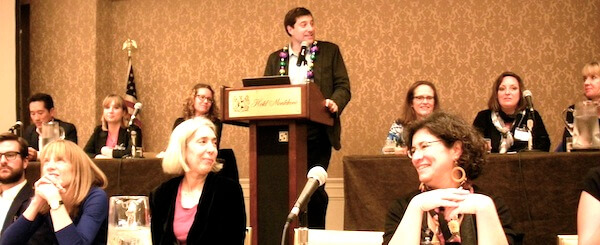 Our favorite panels at the writer events we attended this past year were those featuring agents and editors. This coverage, Part 3 of 4, is from the Agents & Editors panel at Words & Music: A Literary Feast in New Orleans, moderated by Folio Literary Management’s Jeff Kleinman.
Our favorite panels at the writer events we attended this past year were those featuring agents and editors. This coverage, Part 3 of 4, is from the Agents & Editors panel at Words & Music: A Literary Feast in New Orleans, moderated by Folio Literary Management’s Jeff Kleinman.
Η μη επίτευξη στύσης μία ή δύο φορές δεν αποτελεί λόγο ανησυχίας. Αν όμως το πρόβλημα εμφανίζεται συχνά, ίσως ήρθε η ώρα να επισκεφθείτε έναν γιατρό, επειδή μπορεί να πρόκειται για στυτική δυσλειτουργία (ΣΔ). Δεν υπάρχουν ακριβή σημάδια για το πότε πρέπει να δείτε έναν σοσιαλιστή, ούτε υπάρχει ένας καθορισμένος αριθμός – μία φορά farmakeioena.com την ημέρα, μία εβδομάδα ή ένα χρόνο – όταν θα πρέπει να είστε έτοιμοι να κάνετε σεξ. Απλά ακούστε το σώμα σας.
A brief bio of each agent/editor featured appears at the bottom of this post.
Jeff Kleinman: Editors, you’ve just read a book or a book proposal you’re in love with. How do you convince your publisher to buy it?
Ryan Doherty, Editor: It’s a very difficult dance to convince a publisher. It depends on where you are. You have to have the enthusiasm for it; often times your publisher doesn’t have that and so if you love it they will trust it – sometimes it’s a whole panel of people deciding for you and sometimes it’s you and your judgment.
Jackie Cantor, Editor: Sometimes you win them and sometimes you don’t. Passion has a whole lot to do with it if you’re really relentless. I fell in love with a novel and was told it wouldn’t fit in with what we published at Berkley. I kept bringing it up in editorial meetings and I kept being told no and I finally just wore the publisher out. They relented and said I could buy it. We published it and it did well and we’re now getting ready to publish the sixth novel by that author, so that worked out. But I’ve also been turned down by the publisher for books that just don’t fit the Berkeley list or other people don’t love them. You can’t fight city hall.
Brenda Copeland, Editor: I try (to fight city hall). Sometimes I win and sometimes I lose. I’ll give you two extreme examples. I’d been at St. Martin’s just for two years and the first book that I brought up everybody loved and I really didn’t have too much convincing, which is wonderful when you bring something up and everybody else sees something in it that you see as well. On the other end of the spectrum there was a book not unlike the one Jackie was talking about where I really wanted to buy a book. I could see that it was flawed but I could also see how to fix it. Lots of times as an editor you see a flaw but don’t know how to fix it but with this book I really did see a way to make it work. The publisher actually said to me, ‘If I give you some money will you shut up?’ And we’re publishing it next year. But most things an editor takes to the publisher is somewhere in the middle, where the review board will have some concerns and it’s up to the editor to meet those concerns head on, with numbers, perhaps comparisons, with passion and yes, with stubbornness.
Jeff Kleinman (to the writing audience): Do you guys see how hard it is to get a book published? The writing is critical in order to get your team motivated. So, thinking of motivating that team… Here we have these editors, who are going to take our book and hopefully sell it and package it and do beautiful things with it but in order to get it ready for them there’s that editing process.
So, agents – how do you get your book ready to go out for submission?
Jill Marr, Agent:It depends on how ready the book is for proposal. I work generally with structure and so if it’s really bad oftentimes I’ll refer them to an editor I trust – an outside editor. I’ve done that with the last two books I’ve published.
April Everhardt, Agent: I’ll do the first edit pretty thoroughly and then send it back to the author and then I have a group of trusted freelance editors who can do line editing as well as developmental editing to get it ready.
Brandi Bowles, Agent: Editors want it about 90-95% ready to go so I need to get it to that 90% before I send it out for submission.
Howard Yoon, Agent: Sometimes a prospective client isn’t ready and we just have to realize that, unless it’s time-sensitive material and then I’ll do a lot of hands-on with my client, but a lot of it’s up to you guys (the writers).
Deborah Grosvenor, Agent: I spent a long time as an editor so I worked a lot with editing. You spend a lot of time dealing with what the story arc is. In example, they’re journalists and they come in with all this information and they think it’s a book, like a documentary, but I have to get them to see what the arc of the story is before it’s ready to submit.
The Panelists (Listed Alphabetically)
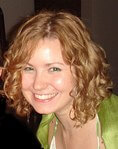 Brandi Bowles is an agent at Foundry Literary + Media, a full-service literary and media-development agency in New York. Brandi represents idea and platform-driven nonfiction in all categories, but she’s particularly interested in humor, narrative nonfiction, and big-idea books that change the way we think about the world. Some of her upcoming books include The Hollow Bone: Secrets From the Life of a Reiki Master, The Vice Lords: A History of Wayward Writers, and a memoir from Youtube sensation Ted Williams. Brandi also represents literary fiction, commercial fiction, women’s fiction, and YA, particularly novels that feature strong female bonds, and psychological or scientific themes.
Brandi Bowles is an agent at Foundry Literary + Media, a full-service literary and media-development agency in New York. Brandi represents idea and platform-driven nonfiction in all categories, but she’s particularly interested in humor, narrative nonfiction, and big-idea books that change the way we think about the world. Some of her upcoming books include The Hollow Bone: Secrets From the Life of a Reiki Master, The Vice Lords: A History of Wayward Writers, and a memoir from Youtube sensation Ted Williams. Brandi also represents literary fiction, commercial fiction, women’s fiction, and YA, particularly novels that feature strong female bonds, and psychological or scientific themes.
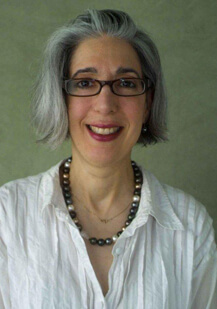 Jackie Cantor is an Executive Editor at The Berkley Publishing Group, a division of Penguin. Prior to joining Berkley in August 2005, she was a Vice President and Executive Editor at Bantam Dell, where her list included a wide variety of fiction and nonfiction titles in all formats. She is proud to have discovered the New York Times bestselling authors Diana Gabaldon and Eloisa James. Other major authors whose work she has acquired include John Grisham, John Lescroart, and Hope Edelman (Motherless Daughters). Two of Ms. Cantor’s current clients—Laura Brodie (Novella) and Lucy Ferris (Novel)—are former winners of the Faulkner Society’s gold medals for literature.
Jackie Cantor is an Executive Editor at The Berkley Publishing Group, a division of Penguin. Prior to joining Berkley in August 2005, she was a Vice President and Executive Editor at Bantam Dell, where her list included a wide variety of fiction and nonfiction titles in all formats. She is proud to have discovered the New York Times bestselling authors Diana Gabaldon and Eloisa James. Other major authors whose work she has acquired include John Grisham, John Lescroart, and Hope Edelman (Motherless Daughters). Two of Ms. Cantor’s current clients—Laura Brodie (Novella) and Lucy Ferris (Novel)—are former winners of the Faulkner Society’s gold medals for literature.
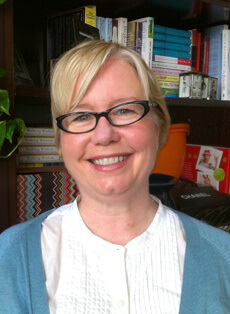 Brenda Copeland is an Executive Editor at St. Martin’s Press, where she has worked since 2010. Brenda publishes a vibrant mix of fiction and non-fiction, from the commercial to the literary, and looks for strong stories told with a strong voice. Current authors include Matthew Dicks, author of Memoirs of an Imaginary Friend, Ann Leary, author of The Good House, and Amy Sue Nathan, whose debut novel The Glass Wives will come out in summer, 2013. Over the course of her career Brenda has published such bestselling authors as Dean Koontz, Claire Cooke, Cecily Von Ziegesar, Melissa de la Cruz, as well as Gotham and Deepak Chopra. Brenda teaches book editing at New York University.
Brenda Copeland is an Executive Editor at St. Martin’s Press, where she has worked since 2010. Brenda publishes a vibrant mix of fiction and non-fiction, from the commercial to the literary, and looks for strong stories told with a strong voice. Current authors include Matthew Dicks, author of Memoirs of an Imaginary Friend, Ann Leary, author of The Good House, and Amy Sue Nathan, whose debut novel The Glass Wives will come out in summer, 2013. Over the course of her career Brenda has published such bestselling authors as Dean Koontz, Claire Cooke, Cecily Von Ziegesar, Melissa de la Cruz, as well as Gotham and Deepak Chopra. Brenda teaches book editing at New York University.
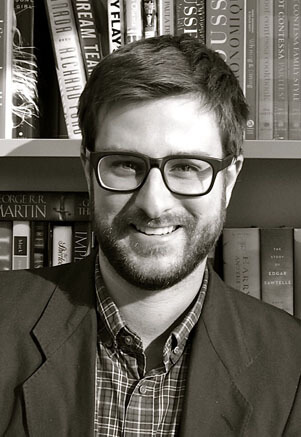 Ryan Doherty is a Senior Editor at Spiegel & Grau, an imprint of the Random House Publishing Group. He is interested in platform and voice driven narrative non-fiction. His eclectic interests in non-fiction include history, personal narrative, popular culture, science, food, music, blog trend titles, humor and biography.Other special interests include debut literary fiction. In the five-plus years that he has been at Random House, Ryan has edited a number of bestselling titles including Loon by Jack McLean, Life as I Blow It by Sarah Colonna, as well as the NBCC Award-winning memoir Half a Life by Darin Strauss. He also has acquired the forthcoming The Mushroom Hunters by Langdon Cook, an authorized biography of Jim Henson by Brian Jay Jones.
Ryan Doherty is a Senior Editor at Spiegel & Grau, an imprint of the Random House Publishing Group. He is interested in platform and voice driven narrative non-fiction. His eclectic interests in non-fiction include history, personal narrative, popular culture, science, food, music, blog trend titles, humor and biography.Other special interests include debut literary fiction. In the five-plus years that he has been at Random House, Ryan has edited a number of bestselling titles including Loon by Jack McLean, Life as I Blow It by Sarah Colonna, as well as the NBCC Award-winning memoir Half a Life by Darin Strauss. He also has acquired the forthcoming The Mushroom Hunters by Langdon Cook, an authorized biography of Jim Henson by Brian Jay Jones.
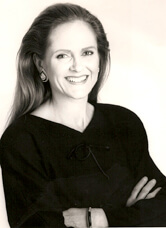 April Eberhardt, after 25 years as a corporate strategist and consultant, joined the literary world as head reader for Zoetrope: All-Story, a literary magazine, followed by five years as an agent with two San Francisco-based literary agencies. She represents clients worldwide, and divides her time between San Francisco, New York and Paris. A self-described “literary change agent,” April founded her own agency in order to assist and advise authors as they navigate the increasingly complex world of publishing.
April Eberhardt, after 25 years as a corporate strategist and consultant, joined the literary world as head reader for Zoetrope: All-Story, a literary magazine, followed by five years as an agent with two San Francisco-based literary agencies. She represents clients worldwide, and divides her time between San Francisco, New York and Paris. A self-described “literary change agent,” April founded her own agency in order to assist and advise authors as they navigate the increasingly complex world of publishing.
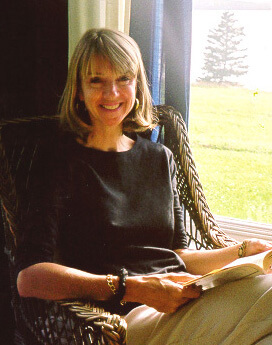 Deborah Grosvenor has worked in book publishing for more than 20 years as an editor and literary agent. During her career, Grosvenor has edited or represented several hundred fiction and nonfiction books in the areas of history, biography, politics, current affairs, memoir, the environment, the military, the South, and science, among others. Her best-known acquisition as an editor was a first novel, The Hunt for Red October by Tom Clancy. Deborah also signed up the debut work of bestselling author Homer Hickham, Torpedo Junction, and helped launch bestselling author Stephen Coonts’s first novel, Flight of the Intruder. Deborah owns the Grosvenor Literary Agency.
Deborah Grosvenor has worked in book publishing for more than 20 years as an editor and literary agent. During her career, Grosvenor has edited or represented several hundred fiction and nonfiction books in the areas of history, biography, politics, current affairs, memoir, the environment, the military, the South, and science, among others. Her best-known acquisition as an editor was a first novel, The Hunt for Red October by Tom Clancy. Deborah also signed up the debut work of bestselling author Homer Hickham, Torpedo Junction, and helped launch bestselling author Stephen Coonts’s first novel, Flight of the Intruder. Deborah owns the Grosvenor Literary Agency.
 Jeff Kleinman is a literary agent, intellectual property attorney, and founding partner of Folio Literary Management, LLC, a New York literary agency which works with all of the major U.S. publishers (and, through subagents) with most international publishers. His authors include Garth Stein, Robert Hicks, Charles Shields, Bruce Watson, Neil White, Philip Gerard, and the late Dean Faulkner Wells. His interestes include nonfiction: especially narrative nonfiction with a historical bent, but also memoir, health, parenting, aging, nature, pets, how-to, nature, science, politics, military, espionage, equestrian, biography. His fiction interests include very well-written, character-driven novels; some suspense, thrillers; otherwise mainstream commercial and literary fiction.
Jeff Kleinman is a literary agent, intellectual property attorney, and founding partner of Folio Literary Management, LLC, a New York literary agency which works with all of the major U.S. publishers (and, through subagents) with most international publishers. His authors include Garth Stein, Robert Hicks, Charles Shields, Bruce Watson, Neil White, Philip Gerard, and the late Dean Faulkner Wells. His interestes include nonfiction: especially narrative nonfiction with a historical bent, but also memoir, health, parenting, aging, nature, pets, how-to, nature, science, politics, military, espionage, equestrian, biography. His fiction interests include very well-written, character-driven novels; some suspense, thrillers; otherwise mainstream commercial and literary fiction.
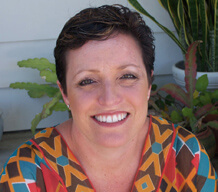 Jill Marr is an acquiring associate agent at the Sandra Dijkstra Literary Agency. She has a strong Internet and media background as well as more than ten years of publishing experience. Jill is interested in commercial fiction, with an emphasis on mysteries, thrillers and horror, women’s commercial fiction and historical fiction. She also is looking for non-fiction by authors who are getting their work published regularly and who have a realistic sense of the market and their audience in the areas of history, sports, politics, current events, self-help, inspirational, cookbooks, memoir (she especially loves travel and foodie memoirs), health & nutrition, pop culture, humor and music.
Jill Marr is an acquiring associate agent at the Sandra Dijkstra Literary Agency. She has a strong Internet and media background as well as more than ten years of publishing experience. Jill is interested in commercial fiction, with an emphasis on mysteries, thrillers and horror, women’s commercial fiction and historical fiction. She also is looking for non-fiction by authors who are getting their work published regularly and who have a realistic sense of the market and their audience in the areas of history, sports, politics, current events, self-help, inspirational, cookbooks, memoir (she especially loves travel and foodie memoirs), health & nutrition, pop culture, humor and music.

Great insight!
Thanks, Jacquie – Write on! Shari
This is a great series – I’ve shared it with many writers at various stages of the process. Thanks!
Thanks, Kelly! Write on… Shari